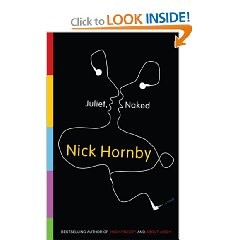Nick Hornby’s latest novel, “”Juliet, Naked,”” is good. It has good lessons, good characters, a good plot. It is certainly enjoyable, and the reader learns a few things while reading it.
But, like all things that are almost completely good, it’s just a little dull.
This is a solid effort from the prolific Londoner Hornby, who is loved by readers and critics alike. The story of fictional ’80s singer-songwriter Tucker Crowe, one of his few fanatical fans and that fan’s ex-girlfriend, is enjoyable. The language is lovely and Hornby reveals many uncomfortable truths about the monster that is the Internet.
It’s told mostly from the point of view of Annie, a 30-something English museum curator in a small seaside town who has spent fifteen years dating Duncan, a Tucker Crowe fanatic. Annie is too smart for her job, too good for her boyfriend and too young to feel so old. Duncan is, from Annie’s perspective, a harmless delusional; he devotes his life to a tiny Internet community with the goal of knowing everything and anything to do with Tucker Crowe.
Tucker Crowe is a musician — well, was a musician — before he canceled his tour mysteriously at the height of his popularity and remained silent and reclusive for the 22 years following. When we hear the story from his perspective, the Crowe that Duncan and his community have created is tellingly comical.
Duncan believes Crowe to be an enigmatic genius who has 100 unreleased songs, contributes to young indie-rocker albums and looks like a caveman, among other ludicrous and uncorroborated claims. In fact, Crowe is just a regular 50-something guy living in Pennsylvania, lamenting his youth and his many divorces. It’s a bit deflating for the reader when we discover who Crowe really is, but that is Hornby’s point: we allow ourselves to invent other people, even the ones close to us. The Internet just makes it easier.
Crowe writes to Annie about an article she posted online criticizing his new album, Juliet, Naked, an acoustic edition of Crowe’s most-loved breakup album, Juliet. They become e-mail friends, and through a set of unlikely-yet-believable circumstances, Crowe visits Annie in her small, sad seaside town.
It’s a story of wasted time, good intentions and the vast cavernous ways people are different from how we conceive them. There are many delightful aspects to the book, including Crowe’s six-year-old son, Jackson. All Hornby’s characters are relatable and believable, but this spunky youngster is especially fun.
The book is about middle-aged people, and though Hornby does an admirable job making the story both interesting and revealing for readers of all ages, the book itself feels a bit washed-up. From the sparse cover to the almost-unkind ending, the book has more brains than heart, and can feel a bit cold. Hornby depicts characters who are very much like real people. As a result, the reader judges them and may not like them — just like we all do with real people.
“”Juliet, Naked”” is another enjoyable, rewarding read from the always-reliable Hornby. But readers might be left wishing he dressed the story a bit more lushly and afforded “”Juliet”” just a bit more love.









